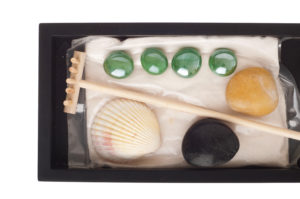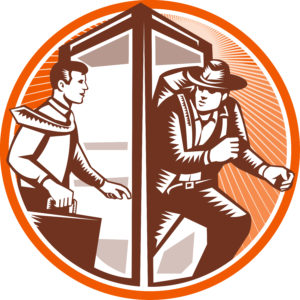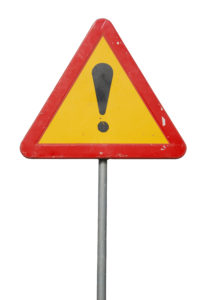Quick links, bringing you great articles on writing from all over the web.
So this! At Writer UnBoxed, Jessica Lourey discusses the therapeutic effect of writing. Any good therapist will tell you the benefits of writing, while Jessica takes it one step further. The therapy of writing a novel, even if you never publish it.
~ * ~
The Therapeutic Benefits of Writing a Novel
by Jessica Lourey
 Please welcome guest Jessica Lourey (rhymes with “dowry”) whose new book Rewrite Your Life: Discover Your Truth Through the Healing Power of Fiction is the only book that shows you how to transform your facts into a compelling, healing novel. Jessica is a tenured professor of creative writing and sociology, a regular Psychology Today blogger, a sought-after workshop leader and keynote speaker who delivered the 2016 “Rewrite Your Life” TEDx Talk, and a leader of transformative writer’s retreats.
Please welcome guest Jessica Lourey (rhymes with “dowry”) whose new book Rewrite Your Life: Discover Your Truth Through the Healing Power of Fiction is the only book that shows you how to transform your facts into a compelling, healing novel. Jessica is a tenured professor of creative writing and sociology, a regular Psychology Today blogger, a sought-after workshop leader and keynote speaker who delivered the 2016 “Rewrite Your Life” TEDx Talk, and a leader of transformative writer’s retreats.
Jessica (Jess) is also the author of the critically-acclaimed Murder-by-Month mysteries, that have earned multiple starred reviews from Library Journal and Booklist. The next one is due out in September 2017: March of Crime. Her other novels are The Catalain Book of Secrets, Salem’s Cipher, The Toadhouse Trilogy: Book One, May Day, June Bug, Knee High by the Fourth of July, August Moon, September Fair, October Fest, November Hunt, December Dread, January Thaw, and February Fever.
Connect with Jessica on her blog, on Facebook, and on Twitter.
The Therapeutic Benefits of Writing a Novel
When my husband died unexpectedly in 2001, I’d never heard of expressive writing. And you know what? It wouldn’t have mattered if I had. Three months pregnant, raising a three-year-old, and suddenly a widow, the last thing I wanted to do was spend even one sharp second journaling about how I felt. No offense to Dr. Pennebaker, the founder of the expressive writing movement. It’s just that I couldn’t survive reliving the pain of my husband’s suicide, not then, not on my own. I needed to convert it, package it, and ship it off.
So I began writing fiction.
Read the full post on Writer UnBoxed

 by
by  Unclear thinking is an enemy of the writer, and it’s most often about being lazy and not fully imagining your story. Write with clarity of purpose, and your writing comes alive.
Unclear thinking is an enemy of the writer, and it’s most often about being lazy and not fully imagining your story. Write with clarity of purpose, and your writing comes alive. Today’s guest post is by
Today’s guest post is by  So I find a lovely-looking review blog. The posts are thoughtful, fair and seriously considered. I look up the review policy and … it says ‘no self-published books’.
So I find a lovely-looking review blog. The posts are thoughtful, fair and seriously considered. I look up the review policy and … it says ‘no self-published books’. Ah, distraction. The bane of our modern existence. Face it—we are going to be deluged with distractions every waking moment of the day. Unless you’ve found a way to live in a bubble or at the top of a mountain, deep in a cave, you probably are going to have some distractions. Even then, that water dripping from the ceiling in a steady rhythm is going to start distracting us.
Ah, distraction. The bane of our modern existence. Face it—we are going to be deluged with distractions every waking moment of the day. Unless you’ve found a way to live in a bubble or at the top of a mountain, deep in a cave, you probably are going to have some distractions. Even then, that water dripping from the ceiling in a steady rhythm is going to start distracting us. by Bryan Hutchinson
by Bryan Hutchinson By
By  The explosion of independent publishing houses in the U.S. and abroad makes it vital for authors to investigate publishers carefully before signing a contract. While even diligent research can’t ensure you’ll avoid every possible problem, here are some questions to ask before you accept a traditional publishing deal:
The explosion of independent publishing houses in the U.S. and abroad makes it vital for authors to investigate publishers carefully before signing a contract. While even diligent research can’t ensure you’ll avoid every possible problem, here are some questions to ask before you accept a traditional publishing deal: Creative work is unlike any other job you could take on. When you create, you leave a piece of yourself behind for the world to see. There’s a certain amount of vulnerability involved.
Creative work is unlike any other job you could take on. When you create, you leave a piece of yourself behind for the world to see. There’s a certain amount of vulnerability involved. Way, way back in September of 2013 I wrote
Way, way back in September of 2013 I wrote  By
By  I wrote this post in 2015, but I’ve added a snippet at the end that’s actually an announcement tied to acknowledgments. So read on!
I wrote this post in 2015, but I’ve added a snippet at the end that’s actually an announcement tied to acknowledgments. So read on! No matter how great a book’s cover and blurb, one thing can stop me from buying yet another ebook for my Kindle: an author bio on the buy page that screams “amateur.”
No matter how great a book’s cover and blurb, one thing can stop me from buying yet another ebook for my Kindle: an author bio on the buy page that screams “amateur.” Let’s face it: writing isn’t always easy. Sure, it’s fun when we’re in the zone, when we have a brilliant idea in mind and the words just seem to flow. But most of the time?
Let’s face it: writing isn’t always easy. Sure, it’s fun when we’re in the zone, when we have a brilliant idea in mind and the words just seem to flow. But most of the time?